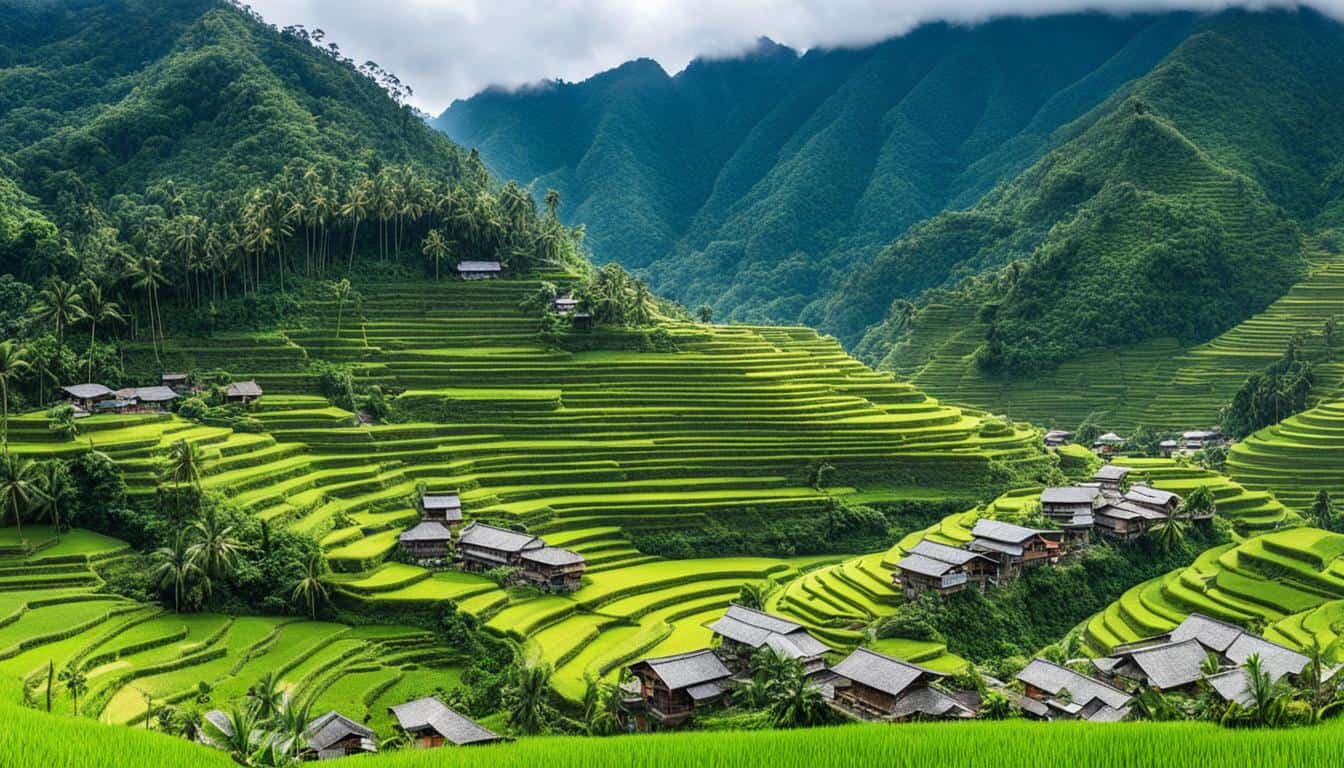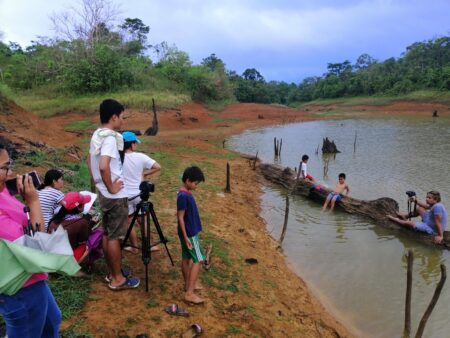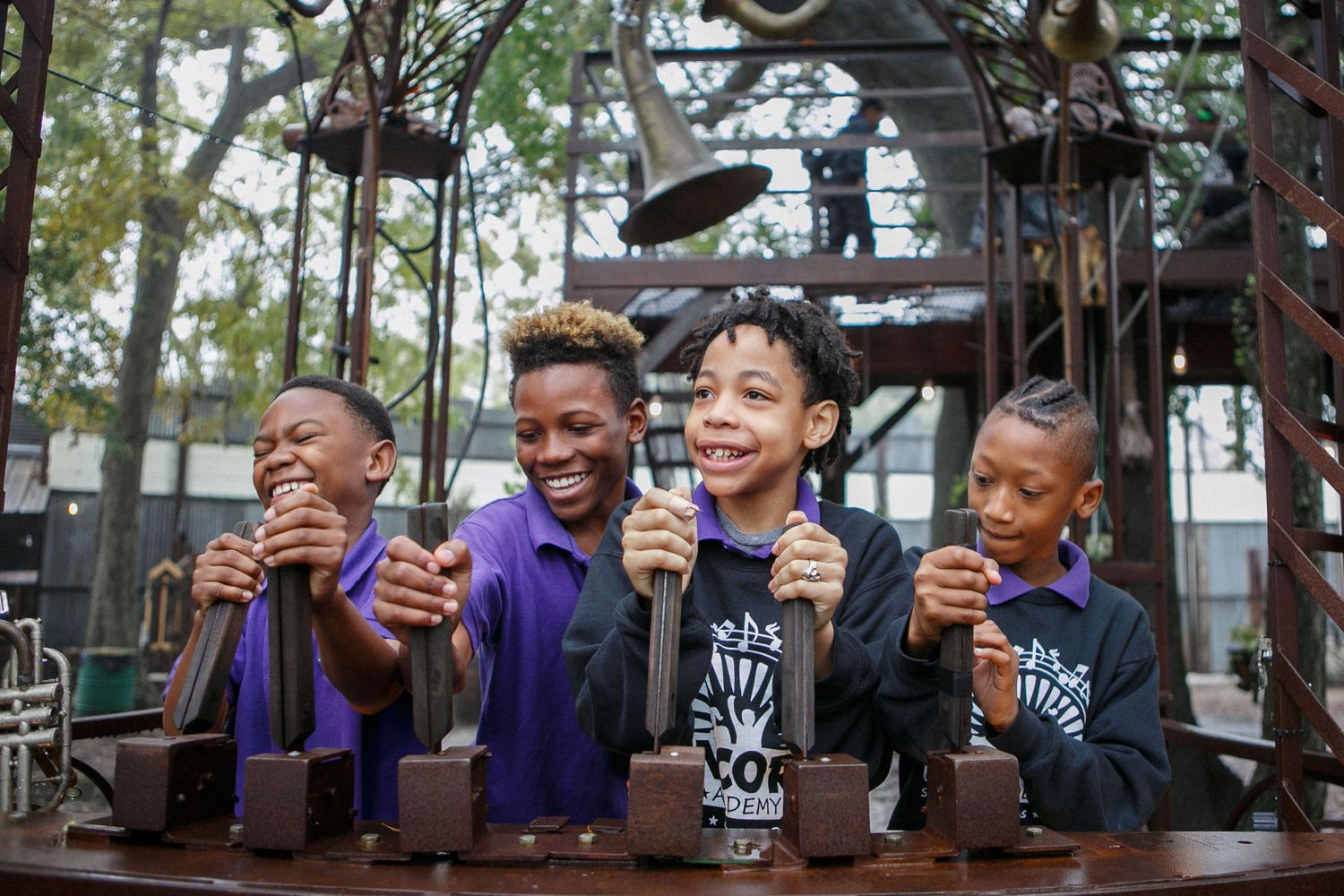
Topics
News & Resources
Journeying to New Communities through Cinema
Jerome L. Dulin with Joseph Arcegono, Cofounders, North Luzon Cinema Guild, Inc.

Tinglayan Village, Kalinga. Photo: North Luzon Cinema Guild, Inc.
Editor’s Note: Our readers know that music-making can be done anywhere and by anyone. This article shares the story of teaching artists who are making this possible in a different art form, one that’s becoming increasingly relevant in the growing field of arts for social impact: filmmaking. We hope you’ll find useful resonances here with your own work, and new ways to think about our field. Youth expression requires many outlets!

On May 14, 2017, we were on our way to Tinglayan, Kalinga in the Northern Philippines to screen films and teach filmmaking to young people—a five-hour drive from our base in Tuguegarao City. It had been five months and three film workshops since we’d founded the North Luzon Cinema Guild; Tinglayan Film Camp was our first collaboration with an Indigenous community.
While we were driving downhill on the foot of the Cordillera Mountains, the brake pads of our yellow 1999 Toyota Fun Cargo gave out. As we careened down the mountain, an old bus headed uphill came into view. Seeing it was going to be tight, we angled our car toward the side of the road…and kept rolling…
—
I co-founded North Luzon Cinema Guild as a recent film school graduate from University of the Philippines, Los Baños. As a student, I had been submitting to film festivals as a one-man team, but something was missing—a soul, an identity, a piece of me. When I first attended the Cinema Rehiyon Film Festival, I watched the best films from all over the Philippines; from my cushioned auditorium seat, I was transported to regions across the country. But I didn’t see any films from Tuguegarao City, my hometown. I felt unrepresented, even voiceless. I didn’t hear the songs of my hometown’s language.
I set out to seek films in my hometown and brought Joseph Arcegono, Sef, to join me on this adventure. Sef became the co-founder of the Guild, anchoring our program toward community development and inclusive and holistic programming.
Since then, Guild has worked to amplify the voices of local storytellers through film workshops and courses. When developing the stories with our participants, we strive to listen to and understand their motivations. Many express a desire to get to know themselves better—to learn more about who they are and what they can become. The more we hear this, the more we understand our purpose.

In our earliest days, we relied on the community as much as on ourselves, borrowing their time, their money, even their food. It was a voluntary communal effort on both sides. There is a formal process to approaching Indigenous communities, set by the National Commission for Indigenous People. In the case of the Tinglayan Film Camp, though, it was we who were approached. They wanted their young people to learn new things, so we let them use film equipment and taught them to produce films. We wanted their stories to reach screens beyond the Cordillera Mountains. And we showed them films from other communities and cultures.
The Guild has since managed to bring online film programs to emerging and aspiring filmmakers from all over the country through the Online Film Lab for Regional Stories. After over 30 film labs, 10,000 workshop attendees, and 40,000 audience members across screenings, we were formally recognized for the first time in 2023, receiving a grant from the Moleskine Creative Pioneers Fund. We were also able to access grants from and partnerships with international organizations and agencies.
For those who want to tell their own stories, hands-on experience with film equipment and editing tools is invaluable. Why cinema? Aside from the ability of the screen to travel great distances, we’ve seen how films can bring communities together, sparking uneasy conversations that become creative discussions. That firsthand experience has anchored in us the knowledge that films can change one’s perspective on hoping and healing, even if they do not immediately change lives.
In that spirit, film camps are crucibles not only for developing skills but for understanding one’s self and connecting with others. Filmmaking and film screenings are both vehicles of change.
—

…Back on the Cordillera mountain roads, our old car narrowly avoided the bus, slowing down and eventually stopping in front of a traditional Kalinga dwelling. A man approached to inspect our vehicle. He was chewing a wrapped betel nut that made his mouth red; his accent told us that he didn’t speak much Filipino. Through stilted conversation, we learned that he was the mayor of the community we were visiting. He helped us fix our broken brake pads and gave us his spare brake fluid. When we left Tinglayan, we did so in a car that worked.
Months later, two films from Tinglayan Film Camp—Chong-As by Jette Palicas and Rogiemar Somera and Naimramutan Gwi Ukali by Ruby Joyce Danga—were programmed in the NCCA’s Cinema Rehiyon Festival, the same event that initially inspired me. They were the first films from Tinglayan to do so.
The arts can do many things. But above all, they reinforce our humanity.
Related Content
All Regions, Collaborations, Community Building, Events/Performances, Gather Together, News and Resources, North America, Professional Development
New ESUSA Opportunities & Events
Patrick Scafidi
Collaborations, Community Building, Europe, Events/Performances, Funding & Support, Gather Together, Middle East, News and Resources, Professional Development
Funding Opportunity for Arab Artists Based in Europe
Patrick Scafidi
Collaborations, Community Building, Featured, Gather Together, New Orleans, North America, Perspectives & Collective Action, Student Voice & Leadership

The Importance of Free Play in Music Education
Patrick Scafidi


